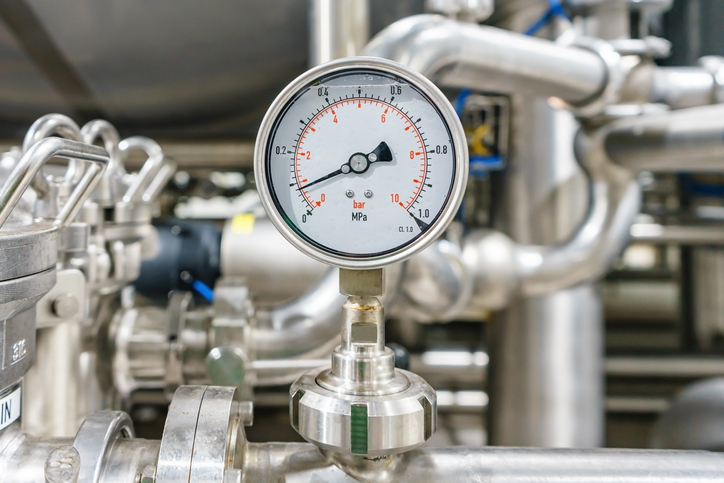
As an industrial business owner or operator, it is crucial to choose the right pressure gauge for your application. A pressure gauge is an essential tool used to measure the pressure of liquids and gases in pipes, tanks, and other vessels. With so many options available, choosing the right pressure gauge can be overwhelming. In this blog, we will provide you with some tips on how to choose the right pressure gauge for your industrial application.
1. Know Your Application Requirements
Before you start shopping for a pressure gauge, it is important to understand the requirements of your industrial application. This includes knowing the type of fluid or gas that you will be measuring, the temperature and pressure range, and the accuracy required. Understanding these requirements will help you narrow down your search for the right pressure gauge.
2. Choose the Right Type of Pressure Gauge
There are several types of pressure gauges available, each with its own advantages and disadvantages. The most common types include bourdon tube gauges, diaphragm gauges, and capsule gauges.
Bourdon tube gauges are the most common type of pressure gauge and are suitable for measuring pressure in a variety of applications. They are reliable and accurate, but can be susceptible to damage from vibration and shock.
Diaphragm gauges are ideal for measuring low-pressure applications, such as in HVAC systems or medical equipment. They are more sensitive than bourdon tube gauges and can be used to measure both pressure and vacuum.
Capsule gauges are used for measuring very low-pressure applications and are often used in laboratory settings. They are sensitive and accurate, but are not suitable for high-pressure applications.
3. Consider the Size and Mounting Requirements
Pressure gauges come in a variety of sizes and mounting options. It is important to consider the available space for mounting the gauge and choose a size and mounting option that is appropriate for your application. Common mounting options include bottom, back, or panel mounting.
4. Choose the Right Pressure Range
Pressure gauges come in a variety of pressure ranges, from very low pressure to very high pressure. It is important to choose a pressure gauge with the appropriate range for your application. Choosing a gauge with a range that is too low can result in inaccurate readings, while choosing a gauge with a range that is too high can result in damage to the gauge.
5. Consider the Material of the Gauge
The material of the pressure gauge is important to consider, especially if your application involves corrosive or abrasive materials. Common materials for pressure gauges include stainless steel, brass, and plastic. Stainless steel is the most durable and corrosion-resistant material, but may be more expensive than other materials.
Conclusion
In conclusion, choosing the right pressure gauge for your industrial application requires careful consideration of several factors, including the type of gauge, size and mounting requirements, pressure range, and material. By understanding the requirements of your application and choosing a pressure gauge that meets those requirements, you can ensure accurate and reliable measurements and avoid costly mistakes. At SS Hussain & Sons, we offer a range of high-quality pressure gauges to meet the needs of any industrial application. Contact us today to learn more.
